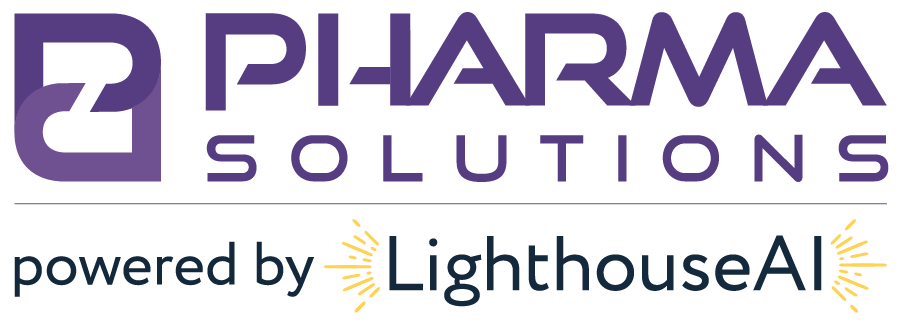PBMs & Pharmacies, Episode V: States Strike Back
The State of New York recently passed into law Assembly Bill A9507C, a seemingly mundane bill concerning “major components of legislation necessary to implement the state health and mental hygiene budget for the 2018-2019 state fiscal year.”¹
However, this bill may have a huge impact on the relationship between wholesale distributors and pharmacy benefit managers (“PBM’s”) in New York State and possibly throughout the country. The part of Assembly Bill A907C that is so pivotal to this relationship is Part MM. This section concerns pharmacy audits conducted by PBM’s. Specifically, Section 2(I) states that,
“IN THE CASE OF INVOICE AUDITS, ACCEPT AS VALIDATION INVOICES FROM ANY WHOLESALER REGISTERED WITH THE DEPARTMENT OF EDUCATION FROM WHICH THE PHARMACY HAS PURCHASED PRESCRIPTION DRUGS OR, IN THE CASE OF DURABLE MEDICAL EQUIPMENT OR SICKROOM SUPPLIES, INVOICES FROM AN AUTHORIZED DISTRIBUTOR OTHER THAN A WHOLESALER.”²
On its face this section seems unremarkable. However, when considering that OptumRx, one of the largest PBM’s in the country, only accepts invoices for reimbursement from VAWD-accredited entities, this provision becomes much more interesting.3
OptumRX’s requirement that entities have VAWD in order to be reimbursed has greatly impacted the pharmaceutical distribution industry. Specifically, pharmacies that use Optum as a PBM have refused to buy from non-VAWD accredited distributors for fear that they will not be reimbursed by Optum, thus essentially blocking out these distributors from obtaining their business. The situation is further expounded by the fact that Optum acts as a PBM to pharmacies that serve patients who are insured under Medicare and Medicaid. Optum is a leading PBM for these programs, so in practice, any distributor that deals with pharmacies that service patients insured under those programs must be VAWD-accredited in order to do business with said pharmacies. In New York, approximately 37% of the population is insured via Medicare and Medicaid, so this presumably affects a good number of pharmacies in the state, as well as many distributors who wish to ship to New York pharmacies.⁴
On its face, A907C seems to break this cycle for NY licensed wholesale distributors. The language seems to suggest that as long as a wholesale distributor is licensed by the NY Department of Education, a PBM must accept any invoices for reimbursement. This means that regardless of Optum’s VAWD requirement, it must reimburse a pharmacy even if a distributor it used is not VAWD accredited in order to comply with this section of the law. However, another provision of the law throws somewhat of a wrench into this projection.
Section 4(B) of A907C states that “THIS SECTION SHALL NOT APPLY TO: …(B) AUDITS OF CLAIMS PAID FOR BY FEDERALLY FUNDED PROGRAMS.”⁵
This means that PBM’s that audit claims for federal programs such as Medicare and Medicaid are explicitly exempt from this law. As discussed above, Optum would fall into this category for some of its business, estimated to be at about 37%. This means Optum would sometimes be exempt from A907C and could continue to require VAWD for reimbursement for Medicare and Medicaid based claims.
More than 50% of New Yorkers are covered by non-Medicare/Medicaid insurance, and so Optum also acts as a PBM for non-Medicare/Medicaid claims.⁶ Presumably, this means Optum would be barred from requiring that pharmacies use VAWD-accredited distributors to supply for these types of claims, a sizable number (potentially the majority) of claims for pharmacies in New York. As it stands now, this is only a hypothesis. AS907C has only just recently been signed into law, so there has not yet been time for anyone to test this hypothesis and no time for Optum to respond to such a hypothesis. Until that time, the matter will not be completely clear, but based on the text of the law, it appears that this could have a huge effect on how distributors, pharmacies, and PBM’s (specifically Optum) interact in New York.
One final question remains: will other states attempt to follow New York’s lead in this area? It appears that this law was enacted to protect the viability of the independent pharmacy model and in order to stop PBMs from obstructing the business of distributors by refusing to reimburse pharmacies that buy from distributors that do not meet the PBM’s self-enacted restrictions. Logically, one would think that as long as a distributor meets a state’s requirements for licensure and holds a valid license, a PBM would have no problem with reimbursing pharmacies that buy from such distributors. But clearly that is not the case, so it seems that this is an attempt by New York to make PBMs comply with that basic assumption.
Unfortunately, New York cannot use this as a solution to the crux of the Optum problem, as New York does not have the authority to force a PBM to reimburse on claims from federally funded programs. However, this is a good first step. Perhaps other states that are wary about letting PBMs essentially establish their own standards for who can and cannot do business in their states will see New York’s example and decide to do the same.
References
1. New York State Senate, Assembly Bill A9507C, https://www.nysenate.gov/legislation/bills/2017/a9507 (last visited May 8, 2018).
2. Assemb. B. A907C, State S., 2017-2018 Leg. Sess. (N.Y. 2018).
3. OptumRx, 2018 Provider Manual (PM) 95 (2018), https://learn.optumrx.com/content/dam/orx-rxmicros/pharmacy-manual/ORX5979A_170616_OptumRx2018PharmacyManual_FINALv2.pdf.
4. KFF, Health Insurance Coverage of the Total Population, https://www.kff.org/other/state-indicator/total-population/?currentTimeframe=0&sortModel=%7B%22colId%22:%22Location%22,%22sort%22:%22asc%22%7D (last visited May 8, 2018).
5. Assemb. B. A907C, State S., 2017-2018 Leg. Sess. (N.Y. 2018).
6. KFF, Health Insurance Coverage of the Total Population, https://www.kff.org/other/state-indicator/total-population/?currentTimeframe=0&sortModel=%7B%22colId%22:%22Location%22,%22sort%22:%22asc%22%7D (last visited May 8, 2018).
About Us
Based just outside of Philadelphia, Pharma Solutions provides actionable guidance and excellent administrative services with a focus on client care across Compliance, Commercial, and Quality solutions. Our mission is to improve the health and welfare of the American public by providing solutions and implementing best practices for companies in the pharmaceutical supply chain.




0 Comments